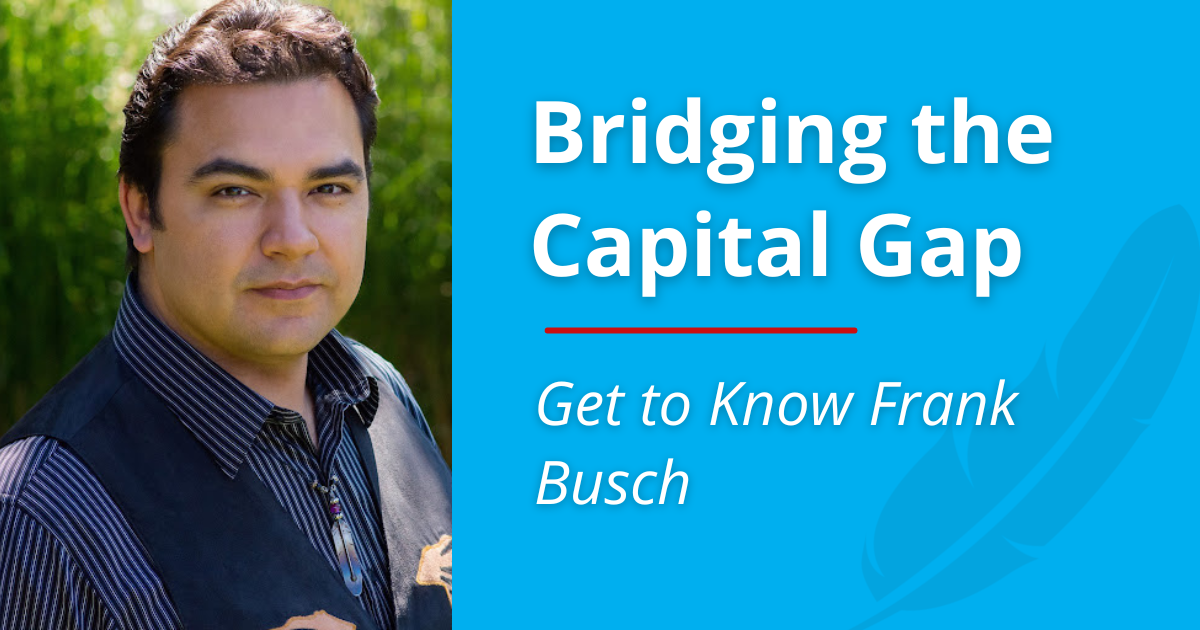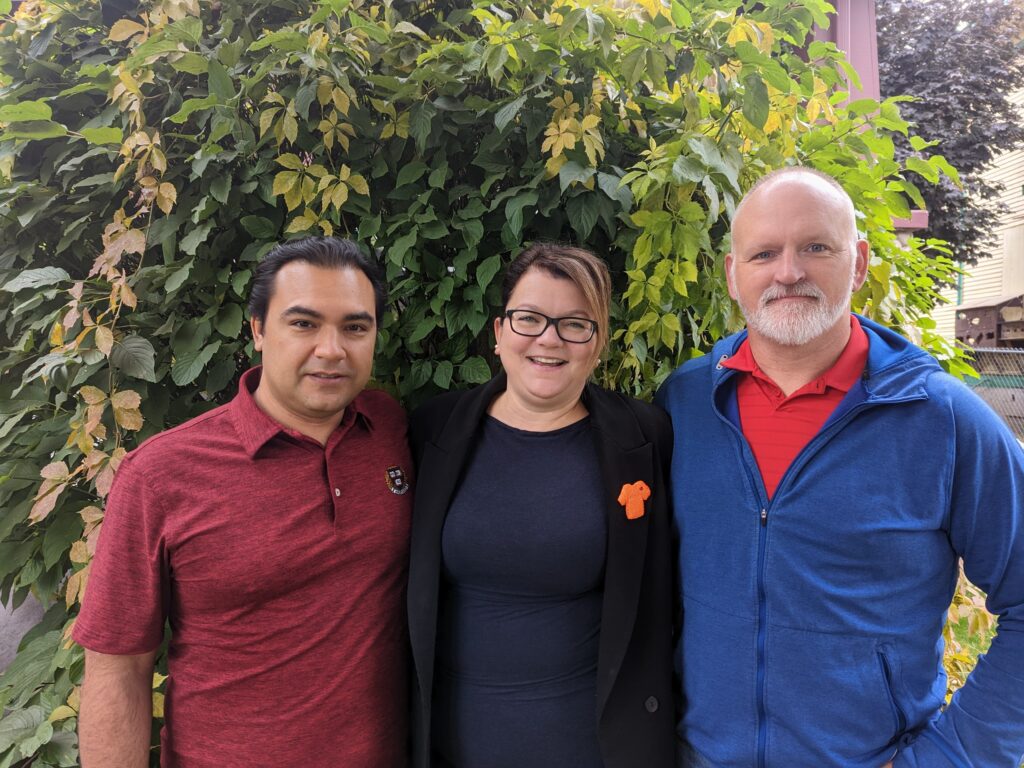Bridging the Capital Gap with Frank Busch

Over the past decade, Frank Busch has visited over 275 First Nations communities across Canada, helping connect them with much-needed financial capital.
A member of the Nisichawayasihk Cree Nation, Busch holds an undergraduate degree in Indigenous Studies from the University of Manitoba, five certificates from the Canadian Securities Institute and a post-graduate certificate in finance from Harvard University.
His education and experience combine to give Busch a unique perspective, and put him in a position to bridge the gap between communities and the financial world. Often-times, he found that Indigenous communities struggled to speak the same ‘financial language’ that helped municipalities and businesses succeed economically.
“It’s a very different language spoken in the band office versus on Bay Street or Wall Street,” he said. “I just tried to learn the language of Bay Street and Wall Street so I can take that back to the band offices and discovered a weird niche of helping Indigenous communities access capital from a place they didn’t really know existed.”
Busch said that Indigenous communities have an opportunity to make the most of such capital, because they are seen in the financial sector as an emerging market within an otherwise mature economy, which offers a rare opportunity for investors.
Since being hired at the First Nations Finance Authority in 2012, Busch has seen more avenues arise for First Nations to lessen their reliance on government funding, which he views as unsustainable in the long run.
“100 years from now or 200 years from now, we really can’t be so reliant on government funding,” he said.
“At the same time the capital markets are changing to become more inclusive of the indigenous communities, people of colour and underserved communities in the economy.”
That dynamic can be used to foster an environment where Indigenous leadership cut out the middleman and obtain funding from the same sources as non-Indigenous governments. Busch helps Indigenous communities access the same tools that municipal and provincial governments have so they can pursue the initiatives that matter to them.
“I love helping communities find capital so that they can develop the projects that they want to do, not just the latest government craze, but what they actually need,” Busch said. Equally as rewarding is watching communities flourish under their own self-direction.
Busch joined the Strategies North team in November as the Director of Economic Development. He said that his values align perfectly with SN.
“Nations need help to be able to access capital, and I found that being able to join up with Strategies North was the best way to cover a lot more ground more quickly,” he said.
“My ‘why’ is to end poverty in the Indigenous community and Strategies North was already doing that, so I just wanted to create a new avenue whereby Strategies North can do more of its good work from the other side through the capital markets.”
Busch estimates that he is one of around five Indigenous people in Canada in his line of work – a fact that he is working to change.
“I try to tell the young people, and I wish I could have told myself years ago, that we need you. Opportunities are tremendous, really just unprecedented in the field mainly because baby boomers who were doing that kind of work are now starting to retire en masse and there’s a lot of gaps opening up. Opportunities that I didn’t see in my mid-20s are there now.”
“Filling that gap is just so important, especially in the Indigenous community, we need to have our own people who have skills in those areas, who have high-level education and the time is now,” he said.
As the Indigenous market continues to emerge, Nations will see new opportunities and gaps will be filled over time. Until then however, Busch said that there are some things nations should look out for when approached by contractors or other actors so that they can ensure their best interests are at heart. As a financial educator, Busch offers nations a presentation about what to look for.
“Do your research, do your due diligence, ask for references,” Busch said, adding that anyone working with a nation should be willing to provide a criminal record check and a driver’s abstract. “I always tell the nations to make sure to ground-truth everything and anything they say they’re involved in.”
Busch said that it is a red flag if contractors are difficult to find on the internet or do not have a professional website. Similarly, it can indicate a problem if they propose using the nation’s funds rather than their own.
“Look at value alignment, someone should be able to prove that they’ve done it before and their heart is in the right place and that they’re going to act in a fiduciary capacity to the nation, that they’re going to put the nation’s needs ahead of their own.”
Busch knows that when that happens, nothing is more rewarding.
“I love seeing the transformation from poverty to wealth and it’s addictive, you get really into it.
“It’s a wonderful world to be a part of, to see that transition and how far we’ve come as Indigenous peoples in Canada.”
